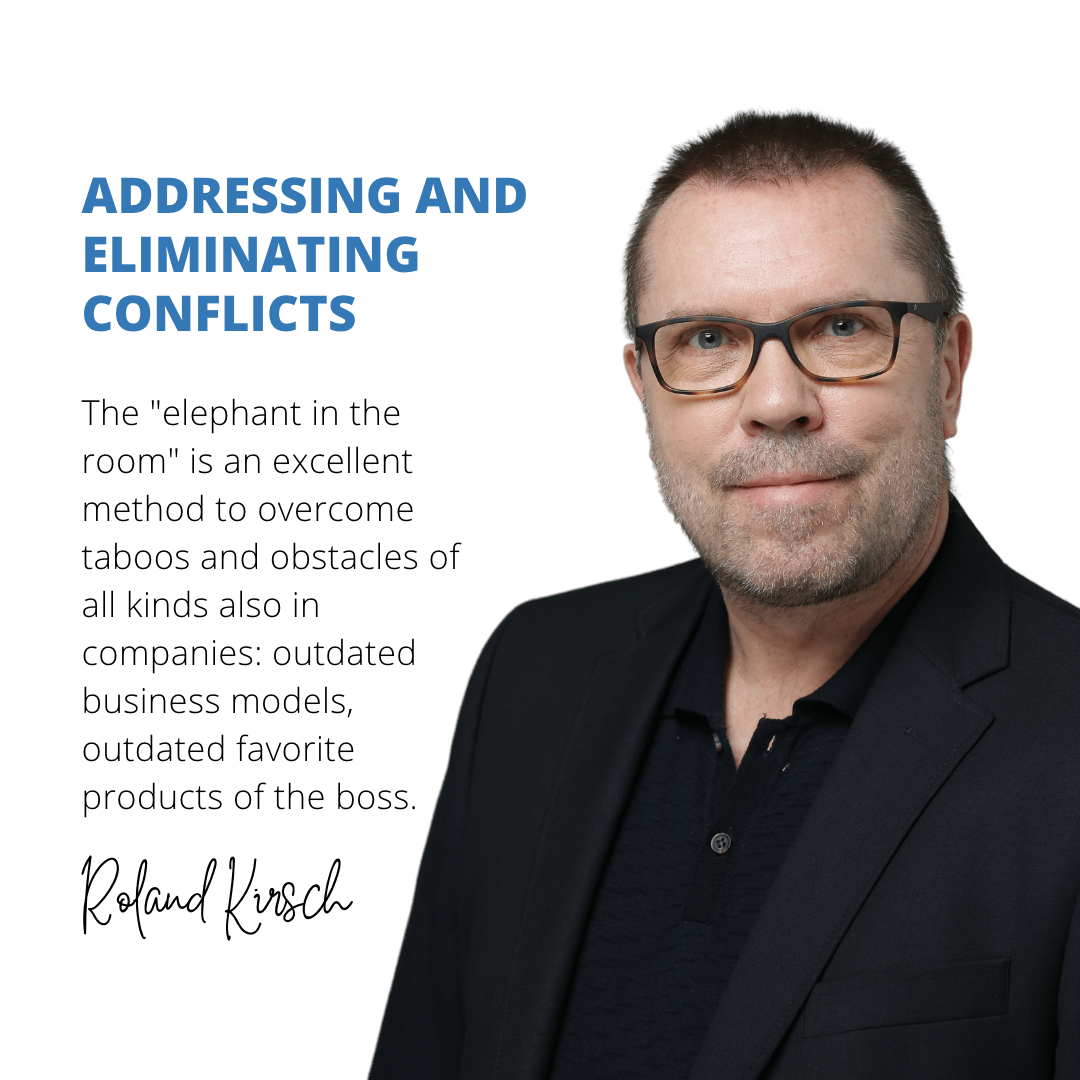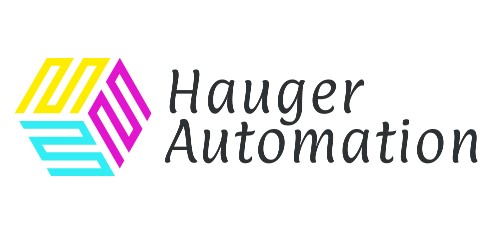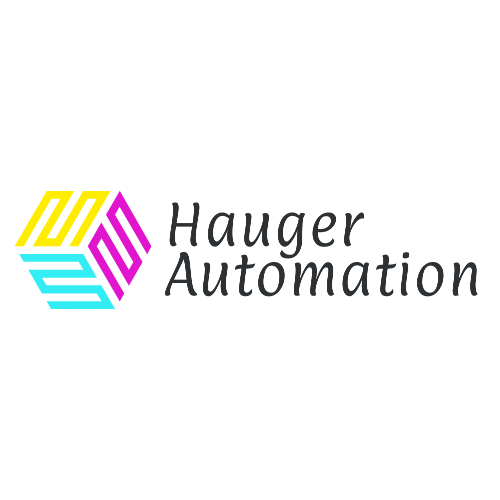About the „elephants in the room“ – Roland Kirsch, Zurich, entrepreneur from Switzerland.
Human interaction is notoriously difficult, and business is no exception. How to eliminate taboos in the thinking of a group by addressing the „elephant in the room“, in conversation with Roland Kirsch.
From the innovations comes the turnover of the next days, so they say. So these innovations must be in the pipeline when existing solutions are no longer sufficient. Inappropriate topics, barriers and „sacred cows“ are unnecessary. With the „elephant in the room“, seemingly insurmountable obstacles can be cleared out of the way, Roland Kirsch quotes the researcher Anne M. Schüller in scientific articles. The current Club of Rome 2022 report underscores the challenge: Technical solutions to problems exist, they need to be understood and applied. But entire industries have an interest in impeding progress to preserve the value of the capital invested in their outdated technologies. They retreat to smoldering hearths instead of exploring new areas with a burning flame. They forgot different opportunities because they fear the possibility of failure. Those who fail in conventional companies put their careers at risk. So groundbreaking has relatively poor odds in this regard. However, those who have bad cards lose the game. Those who perpetuate the status quo are weeded out by customers who want more than what was available yesterday, and by those who understand those customers. It is precisely the baby boomer generation that makes up today’s management that is proving to be a major obstacle, says Roland Kirsch.
On a large and small scale – problems are not recognized and not eliminated
You also hear this frequently: „Our sales are booming. We are working at the limits of our capacity. The business model is solid. The products are suitable. Things are going quite well for us. Why change anything if everything is going well?“ If that’s the case, it’s time to take a bold leap into the future. If a company isn’t doing well, it doesn’t have time for that. Unfortunately, however, many vendors are trying to optimize their history rather than break new ground. Their managers are not innovators, but rather administrators, because the system they are responsible for does not reward initiative.
Those who want to be prepared for the future must recognize courage
No company gains competitive advantage by requiring its employees to perform routine tasks and stick to the status quo. Competitive advantages are gained by breaking new ground, taking unconventional paths, behaving boldly and developing creative ideas. Companies should therefore encourage not conformity but courage: – the courage to think and act differently, – the courage to try something new.

Furthermore, there are challenges in virtually every company that cannot be ignored. But they are only discussed behind closed doors: outdated business models, outdated boss’s favorite products, outdated rules and rituals, alpha-hierarchical power structures, outdated decision-making processes, antiquated leadership techniques, a false culture of error, an overflowing, home-grown bureaucracy, groaning meetings, misguided bonus strategies and much more.
Decluttering through the proverbial „elephant in the room.“
A „Future Mindset“ and a „Future Organization“ are required for the „Future Economy“ that combines human and artificial intelligence. This requires traditional management to scrutinize all current tactics and associated practices, focusing particularly on the „sacred cows.“
The „elephant in the room“ is an excellent method to overcome taboos and obstacles of all kinds. Why do “elephants” exist? Because it refers to an important issue: a visible problem that stands thick and wide in the room, preventing access to a better future. It is unmistakable, and yet everyone pretends that the problem does not exist. The central question of such communication in the group is as follows:
„When it comes to our future, what are the real obstacles and roadblocks that no one talks about publicly but that we should talk about?“ This is the only way to future-proof ourselves, because the pace of innovation is constantly accelerating and no one can rely on yesterday’s solutions counting tomorrow. After all, Prof. Dr. Roy Amara’s law is already common knowledge: „We tend to overestimate the effect of a technology in the short run and underestimate the effect in the long run.“….
Dr. Rainer Schreiber interviewed the Zurich entrepreneur Roland Kirsch, who helped many entrepreneurs to take the decisive step.
About the author Dr. Rainer Schreiber:
Personnel consultant and honorary lecturer Dr. Rainer Schreiber studied economics with a focus on financing, controlling, human resources and training. He works in professional adult education and publishes on the topic of personnel consulting, demographic change and economic policy.
Contact:
Roland Kirsch
Hagenholzstrasse 85B
8050 Zurich
Switzerland
Tel.: 0041-445458195
Mail: anfrage@geckomoney.com
Web: https://geckomoney.com
About Roland Kirsch:
As a founder, investor, entrepreneur, Roland Kirsch lives and manages his business activities from Zurich, Switzerland. Active as a businessman since the mid-eighties; today his focus is on digital business models and their optimization. Through his successful projects and views, the „entrepreneur and business punk“ encourages international entrepreneurs to embrace change and proactively shape it. He has been actively involved in promising companies with capital and know-how since the mid-nineties. For further information please visit: www.geckomoney.com
PRESS CONTACT
Roland Kirsch
Hagenholzstrasse 85B
8050 Zurich
Switzerland
Tel.: 0041-445458195
Mail: anfrage@geckomoney.com
Web: https://geckomoney.com





